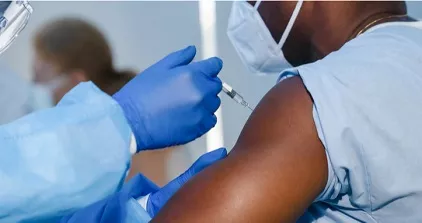
Since the first roll-out of COVID-19 vaccinations in the UK in 2020, there have been regular vaccine programmes at different times of year offered to different people, depending on a person’s individual risk of serious illness from coronavirus.
From Autumn 2025, the eligibility for a COVID-19 vaccination in the UK is changing, compared to recent years.
Each time a vaccine programme is planned, the Joint Committee on Vaccination and Immunisation (JCVI) advises the government about who should be offered a vaccine.
The JCVI have said that over the last four years, immunity to the virus that causes COVID-19 has built up across the population. For most people who catch COVID the illness is usually mild, though it can still cause unpleasant symptoms. The people who remain most at risk are older adults and people who are immunosuppressed.
The government has therefore decided that, from Autumn 2025, only the following groups of people will be offered a COVID-19 vaccination in the UK:
- adults aged 75 years and over
- residents in a care home for older adults
- individuals aged 6 months and over who are immunosuppressed (for more information see the NHS website: COVID-19 vaccine - NHS
This means that, from Autumn 2025, children and adults in the UK living with long-term health conditions, including diabetes, who do not fall into one of the above groups will no longer be offered a COVID-19 vaccination.
This does not affect flu jab eligibility and people living with diabetes will still be offered a winter flu jab as normal in 2025.
If you’re confused about which vaccines you’re entitled to or have any questions, you can speak to your healthcare team or call our free helpline on 0345 123 2399.
